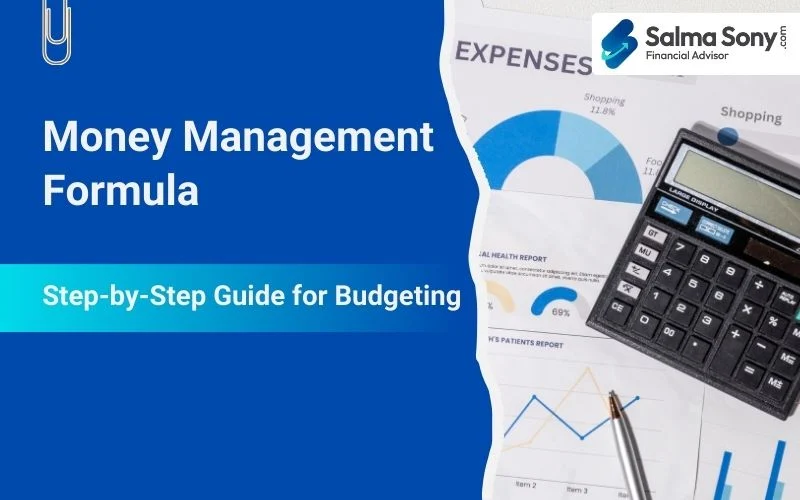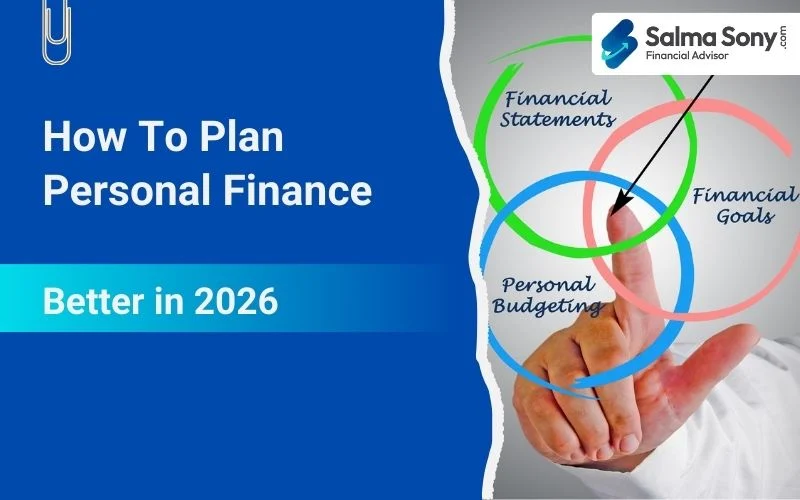Most individuals have multiple dreams that need money and support to come true. While talking to multiple salaried professionals every month who wish to create wealth, when I drill down and ask them, “Why do they need money or want to create wealth?” they answer to achieve their financial goals like house purchase, retirement planning, child education, international vacation and so on.
As a financial advisor, I always say financial planning is an undervalued name; financial planning is all about life planning, and a good financial plan can make your money dreams come true. In this article, you will learn how to create a good financial plan and identify the mistakes you must avoid.

3 Mistakes You Must Avoid to Ensure a Good Financial Plan
- Not working on fundamentals: Risk cover is the fundamental of your personal finance. Ensure you have proper life insurance and medical cover for yourself and your family. Also, you must work on building an emergency fund before you start goal-based investing for your financial goal.
- Not planning for small milestones: You must also plan for small milestones to ensure your long-term goal investments are not hampered. I have explained below why small milestones/essentials play a vital role in a good financial plan.
- Not doing Goal-based Asset Allocation: Often, investors don’t focus on goal-based asset allocation. They intend to make 100% equity allocation for long-term goals. Just doing a portfolio asset allocation is not enough; one of the biggest mistakes you may make is avoiding goal-based asset allocation. Ensure asset allocation for both goal-wise and for overall portfolio.
How To Create A Good Financial Plan?
A good comprehensive financial plan covers multiple aspects of your financial life, from your current financial situation to planning for retirement inclusing tax planning. The most crucial part of creating a financial plan is to be crystal clear on your financial goals, budgeting, becoming debt-free, and investing based on your goals and risk appetite.
1. Set Financial Goals: Be Crystal Clear on Your Goals
Goal setting is the most critical step in creating a good financial plan; it is vital to plan all the essentials that will need money and not just the bigger goal. Most of the time, when an individual / financial planner considers only a bigger goal and unplanned expenses (essential/small goals) coming the way, it disturbs the long-term bigger goal.
Here is a classic example: This fits well for the individual who is single or married, but the child is yet to be born and is working towards a child’s higher education (bigger goal).
Most individuals / financial planners, while working on a child’s higher education, miss out on planning for childbirth expenses and one-time school admission fees and jump on investing straight forward for a child’s higher education. In this situation, though you have started working towards a bigger goal, small expenses (childbirth expenses and one-time school admission fees) will hamper the process as you may disturb the long-term investment for short-term essentials that you may have underestimated.
Hence, it is vital to capture all essential goals, and that’s when you can create a good financial plan.
2. Budgeting: Master it
Budget gives a crystal-clear idea of where your money goes. When I initially meet individuals to help them understand how a good financial plan can make a difference in their lives, one of the significant concerns they express is budgeting.
Usually, they say: I don’t know where my money is going, I think I’m spending more on unnecessary things, I’m not satisfied with how I save, etc.
If you also feel similar, you need to work on your cash flow, and Budgeting Excel Calculator can help you in this big way.
By working on a budgeting Excel calculator, you will know how much your regular and annual expenses and monthly investments are; this will also help you work on reducing your unnecessary expenses and increasing your investment.
Here is how you can break your expenses into different buckets to ensure it’s working in your favour
- Investment Bucket: After working on your budget, you know how much money investment commitment you have. Have a separate bank account for your investment. Ensure you move the exact amount to your bank account allocated for investment as soon as you receive your salary.
- Annual Expense Bucket: Certain expenses, like child school fee, insurance premium, etc, do not come every month but quarterly or, semi-annually or annually. For such expenses, take the monthly average and move the amount to the bank account allocated for investment to ensure this money is available when needed.
- Regular Expense Bucket: This can be your salary bank account. Once you are done moving money required for monthly investment and annual expenses, the money left out can be used for your daily expenses.
By following the abovementioned strategy, you will become a pro in budgeting and know where your money is going.
3. Become Debt Free: Help Save More
Many individuals are comfortable with Debt but, unfortunately, are unaware that they are hampering their wealth creation process; as they are in Debt with a large sum of EMI, their cash flow is impacted significantly. With loans, they are not left with much savings to invest for their future; instead, they help the bank make more money by taking multiple loans.
I believe one should not take any loan or, at most, a home loan (as minimal as possible). It may seem hard to believe, but with a good financial plan, one can plan a house purchase without any loan, and I’m glad to share that I have helped my clients do so. Here are a few of my articles on being Debt free:
- How To Buy A Home Without A Loan In India
- How to Close Home Loan Early
- 5 Step-by-Step Smart Ways to Reduce or Repay Home Loan / Personal Loan
4. Goal-based Investing: Game Changer
Goal-based investing is an essential part of financial planning. Goal-based investing helps you choose the right investment considering your risk profile.
(a) Very short / Short-term financial goals: Go safe
(b) Medium-term financial goal: Take a moderate risk
(c) Long / very long-term financial goal: Aggressive risk (if risk profile allows), or else moderate risk
Here is the sample of investment mapped based on time-horizon.
| Objective | Time Horizon | Mapped Investment (Sample) | Possible Goals |
|---|---|---|---|
| Very Short-Term | <1 Year | Liquid Mutual Funds/ FDs / Flexi-FD | Emergency Fund, Park excess cash |
| Short Term | 1-3 Years | Arbitrage / Debt Mutual Funds | Vacations, Car Purchase |
| Medium-Term | 3-6 years | Hybrid Mutual Funds | House Purchase, Car Purchase, Start Up Funding |
| Long-Term | 6-10 Years | Large Cap, Multi Cap, Flexi Cap – Equity Mutual Funds | Children’s Education, Children’s Marriage, Dream House |
| Very Long-Term | 10 + Years | Mid Cap Small Cap – Equity Mutual Funds | Retirement, Vacation Post Retirement, Child’s Future, Wealth Creation |
Here, I am listing the primary life goals:
- House Purchase Goal: Owning a house is a dream of all Indians, and most individuals want to stay comfortably in their homes. If you look at the trend of house purchases in India, it is mostly on loans, which is the biggest mistake an individual makes in the initial stage of their career, and it creates a considerable liability. A good Financial plan can help you take home with a nominal or no loan.
It’s time to change the mindset. It’s time to stop being comfortable with EMIs and replace EMIs with monthly systemic investment plans (SIPs) so you can buy a home with no or minimal loan. - Child Higher Education Goal: Sending the child to a good school is another vital dream for the parents. They wish to see their child excellently in their career, so sending them to a good graduate school is essential. A good financial plan can help you get more clarity on your goals and send your child to a good school without taking an education loan.
- Car Purchase Goal: Owning a car is no longer a luxury but has become a basic need, especially after marriage. That’s why taking a car on loan is now very common, a recurring goal, as the vehicle is a depreciating asset. So, if you plan to take the car in a few years, you must start saving for this goal by investing in an appropriate instrument based on your risk profile and the number of years left for the goal. Ensure to get started with a car that falls within your budget.
- Vacation Goal: Vacation is for taking a break and relaxing with your family. Many individuals don’t plan for a vacation, swipe their credit cards, and stay worried about the payment rather than enjoying their vacation —a good financial plan helps plan a worry-free vacation by setting up a system after analyzing your budget.
- Comfortable Retirement Goal: Living a comfortable life is an individual’s right. All salaried working professionals must start planning for their comfortable lives in the initial stage of their careers. In retirement planning, starting early investment plays a crucial role, without which one may have to work longer to care for their living.
Conclusion:
In today’s scenario, when every individual aspires to have a better life, a good financial plan can be a great roadmap that will help you make your money dreams come true. Either do it yourself or work with a SEBI-Registered Certified Financial Planner who can help you fasten the process of making your money dreams come true.





